#victoria saxon
Explore tagged Tumblr posts
Text


The White Lotus Season 3 Trailer | The Ratliffs
#parker posey#jason isaacs#patrick schwarzenegger#sarah catherine hook#sam nivola#the white lotus#the white lotus s3#thewhitelotusedit#whitelotusedit#tvedit#parkerposeyedit#jasonisaacsedit#patrickschwarzeneggeredit#sarahcatherinehookedit#samnivolaedit#hbo#hbo max#victoria ratliff#timothy ratliff#saxon ratliff#piper ratliff#lochlan ratliff#**
160 notes
·
View notes
Text
I’ve seen a lot of people online saying that Piper is either going to be Quinn 2.0 from Season 1 or Olivia 2.0, and honestly, I get it. I understand where those assumptions are coming from and it wouldn’t be the worst thing in the world especially if she ended up as another Quinn. She seems like a nice girl stuck in a fucked up family. But my god that would just be so boringgggg. We’re only on Season 3 it’s way too early for the show to start recycling character archetypes. I also think with the added dynamic of her brothers she’ll be her own evil freaky bitch yk. Anyways the siblings got me fucked up.
Her brothers are themselves. Saxon is the most outrageous out of three I don't think he's ever been proper humbled in his life and has a very very very disgusting black and white outlook on the world.


He's like those men who believe life revolves around sex and sex is just a game. The type of man that excuses his abhorrent terrible behavior on his “natural human instinct”.
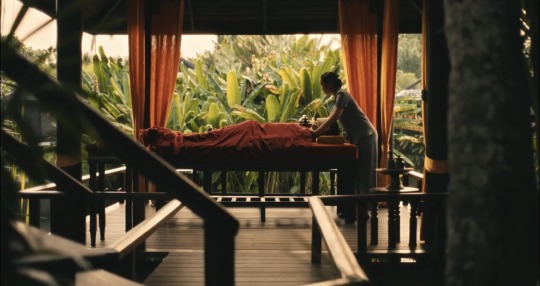
Lochlan is definitely chiller, but still a freak in. He seems to crave attention from both of his siblings in a very odd way. He enjoys Saxon’s “life advice” and gossip. I think he’s very aware of his brother’s unhinged nature and recognizes that it’s ridiculous but I genuinely don’t believe he sees it as anything more than that. He’s the kind of guy that just brushes Saxon’s behavior off because “he’s just a silly guy,” YK?
And with Piper, I think he definitely knows she’s the more normal one compared to Saxon. Even though we haven’t seen them interact much yet I think they’re able to have more honest conversations with each other. He tells her that he attempted to pray and even though he didn’t really feel any sort of divine intervention or anything he still chooses to share this with Piper.
He also gives off gossipy vibes. When Saxon tells him he thinks piper has never had sex before he decided to tell piper about it but not in a concerning “our brother is a freak” way but in a playful way, kinda like it’s just some casual chitchat, rather than something deeply weird. Like I mentioned earlier he also excuses his brother behavior by down playing it and explaining the original context of the statement as a “compliment”????


And after piper is clearly disturbed and uncomfortable with this conversation he decides to double down and ask her if she had had sex before.

This gossipy nature comes out during their lunch scene with that whole Kate and Victoria interaction. I already talked about how I interpreted both Kate’s and Victorias feelings in this scene and why the both specifically acted that way in this post but the way Lochlan acts is also very telling of who he is he's the only person at that table to question his mothers odd behavior telling her straight up was was kinda rude. But just like with Saxon I don't he actually cares or takes an issue with how his mom handled that interaction he's not actively trying to call her out but more curious than anything. Get kinda messy with it. YK? Anyways like I said he doesn’t actually care about how she acted based off how he reacts to her prostitution joke laughing along with Saxon and his father. Actually scratch that he looks at Saxon first to check if HES LAUGHING. also he was 100% ready to watch his brother jack off. Weirdo!
Then there’s piper. Like fucking pipe. She does seem to be the most sane out of all of them in the instances that I brought up she’s like literally the only person with an appropriate response. but I still can't properly pin point her. I want to believe she's sane and normal I really do and hell she might be and I might just be too fucking suspicious but there is just something about her. When lochlan tells her about saxsons comment about her sex life her first reaction to me seems defensive. Not even a "why would he say that" type of reaction which she settles for later but a "he doesn't know what I do".


And again, I might be reading into things, but it just feels so specific. I’ve been watching this season with my friends one of them specifically loves Piper’s character and another thinks she’s just a performative white girl Olivia 2.0 But neither of them think she’s a freak.
In defense of my friend who thinks she’s just another privileged white girl she did point out another moment during the family’s lunch conversation
She tells her dad that she didn’t choose this hotel and that it’s not her vibe and its like “Disneyland for rich bohemians from Malibu and their Lululemon leggings”

Then later she’s seen in yoga in what honestly I wouldn’t be surprised if they were Lululemon leggings.

Anyway, it’s almost 8pm where I am now and I need this new episode to drop now.
#the white lotus#piper ratliff#saxon ratliff#lochlan ratliff#victoria ratliff#the Ratliffs#the ratliffs white lotus#timothy ratliff#white lotus season 3
19 notes
·
View notes
Text
I didn't even make this connection 😕 uh oh!
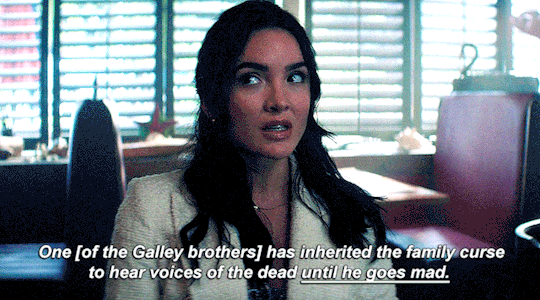


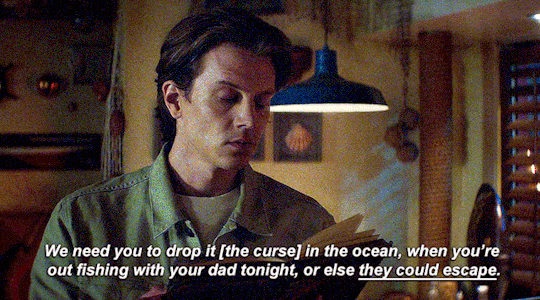


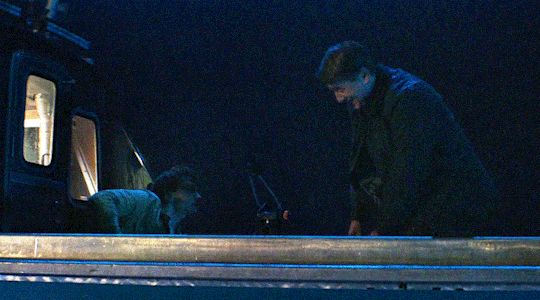

S4E11, The Sinner's Sacrifice: Bess is left feeling concerned after speaking with Ace.
411 notes
·
View notes
Text
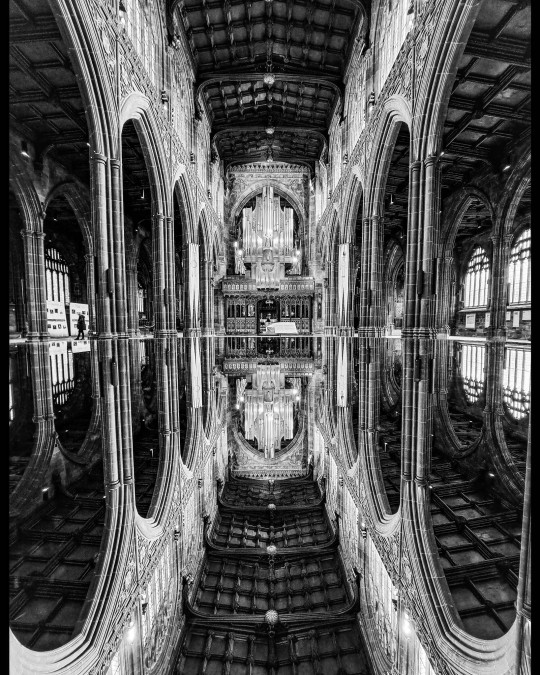

©️Alistair Francis 2023
#photography#architecture#Manchester#alistairfrancis#reflection#Manchester Cathedral#Greater Manchester#archway#shapes#choir#victoria street#gothic revival#anglo saxon architecture
1 note
·
View note
Text
Paradise Unraveled Pairing: Saxon Ratliff x Reader
Summary: You, Saxon’s girlfriend, join his wealthy family on vacation at The White Lotus resort in Thailand. While the trip starts as a lavish getaway filled with luxury, there is an undercurrent of tension—especially with Saxon’s mother, who subtly tests your place in their world.
Author's note: Is it too soon for a Saxon fic? Saw the first ep last night and damn if Patrick Schwarzenegger isn't a damn good psycho already. (He will play Tom Brady when they make his biopic just calling it now). I hate Saxon's mother.

You’ve never been on vacation with Saxon’s family before. Sure, you’d met them—formal dinners, a few holidays, the occasional charity gala where his mother would comment on your dress in a way that felt both like a compliment and a critique. But this? A full week at a luxury resort, no escape in sight? It was uncharted territory.
The White Lotus in Thailand was stunning—palms swayed against an impossibly blue sky, the ocean stretched out like glass, and the resort staff greeted you with hands pressed together in a wai, murmuring greetings that you hoped you responded to correctly.
“This place is sick,” Saxon said beside you, his sunglasses sliding down his nose as he surveyed the pristine infinity pool. You reached over and pushed them back up playfully.
“Think we’ll survive this week?” you teased.
Saxon grinned, a little cocky, a little mischievous. “As long as you don’t let my mom get to you.”
That was easier said than done. His mother, Victoria, was the kind of woman who never had to raise her voice to make someone feel small. She wielded her wealth like an art form, and the idea of you—her son’s girlfriend, not yet engaged, not yet solidified in her social stratosphere—was something she still seemed to be assessing.
At dinner that first night, she watched you carefully over a glass of wine, asking polite but pointed questions. “So, what are your long-term goals?” “How do you see yourself fitting into Saxon’s world?”
Saxon, to his credit, squeezed your thigh under the table, a silent reassurance that he had your back. “Mom, she’s not applying for a job,” he said smoothly, cutting through the tension.
Still, you felt the weight of her gaze.
The days passed in a blur of boat trips, lavish meals, and spa treatments, but there was an undercurrent of tension you couldn’t quite place. The resort was beautiful, yes—but it had that strange, too-perfect quality, like something hiding in plain sight. The staff always seemed on edge, whispering when they thought guests weren’t listening. There was a story here, a history that no one was talking about.
And then there was Saxon. He was easygoing, charming, the life of the party. But there were moments, just flickers, where he seemed… different. A little too fixated on his reflection in the mirror. A little too eager to impress the other wealthy guests.
One night, you found yourself alone at the bar, watching the resort’s other guests mingle. That’s when you heard it—two employees speaking in hushed Thai. One of them glanced in Saxon’s direction, then at you. The only words you caught?
"He doesn’t know."
Doesn’t know what?
And just like that, the trip took a turn.
Because the next morning, Saxon was missing.
And you had a feeling that The White Lotus was about to reveal exactly why it was famous for more than just luxury vacations.
#the white lotus#white lotus#the white lotus season 3#white lotus season 3#patrick schwarzenegger#saxon ratliff#saxon ratliff x reader#saxon ratliff imagine#saxon ratliff fanfic
152 notes
·
View notes
Text
Random Doctor Who Facts You Might Not Know, Part 2
While attending Jago and Litefoot's knighting ceremony, the Sixth Doctor had to go in disguise because of the grudge Queen Victoria had against him, which was started by the Tenth Doctor.
Once, the TARDIS jumped a time track, leaving the Tenth Doctor at Powell Estate for a week. During this time, he lived with Mickey.
A team called the "Plastic Surgeons," comprised of the Tenth Doctor, Rose Tyler, and a lone Auton, won a Mannequin Challenge competition.
The Shopkeeper from the SJAs may have been an incarnation of the Corsair according to RTD.
The War Chief once had an aborted regeneration, which left him deformed, his past and future selves joined together. He had a conjoined dual skull and an extraordinary set of limbs.
The Third Doctor took Jo back in time in an attempt to kill that same would-be-dictator baby but also failed to do so after seeing his Sixth try the same (some of you already know where I am going with this).
After being irradiated on Metebelis III, the Third Doctor was stuck in the time vortex for ten years, dying very slowly.
Ian and Barbara's son became a pop singer.
The Eleventh Doctor once traveled with a robotic copy of a Tyrannosaurus rex named Kevin. His tiny arms made him unable to help pilot the TARDIS.
Kamelion and the TARDIS had a child together.
Missy killed the incarnations that came both before her (Saxon Master) and also after her (the Lumiat).
The Venusian Lullaby sounds like God Rest Ye Merry Gentlemen because Jago and Litefoot sang it on Venus to soothe the Shanghorn.
The First Doctor caused High Tutor Albrecht to regenerate by experimenting with a perigosto stick and a temporal feedback loop.
The First Doctor rigged a drinks machine to produce mercury during his time at the Academy to experiment with, nearly causing his professor to regenerate.
The First Doctor's dorm room had posters in it and became timelocked after an experiment gone wrong. No one ever figured out how to get rid of the timelock.
Basically, the Doctor was a menace even as a student, but everyone knew that.
Part 1, 2, 3, 4, 5, 6, 7, 8, 9, 10, 11, 12, 13, 14, 15, 16, 17, 18, 19, 20, 21, 22, 23, 24, 25, 26, 27, 28
#doctor who#dw#dr who#classic who#new who#fifth doctor#first doctor#dw eu#doctor who eu#doctor who expanded universe#big finish doctor who#big finish audios#big finish#tardis#kamelion#jago and litefoot#eleventh doctor#barbara wright#ian chesterton#third doctor#missy#the master#the lumiat#tenth doctor#rose tyler#mickey smith#the war chief#the corsair#sixth doctor#simm!master
461 notes
·
View notes
Text



Princess Alice with her second daugther, Elizabeth, later Grand Duchess of Russia, 1864-1865.
Darmstadt, November 7, 1864 | The little daughter was but a momentary disappointment to us, which we have quite got over. We console ourselves with the idea that the little pair will look pretty together.
November 20, 1864 | Louis's mother is to be godmother, because it is customary here to ask someone of the name the child is to receive to stand on the occasion. We liked Elizabeth on account of St. Elisabeth being the ancestress of the Hessian as well as the Saxon House.
November 26, 1864 | I am very well and very careful; all people say I look better, and have more colour than I have had for long, and, indeed, I feel strong and well, and by fat Baby does perfectly, and is a great darling.
November 29, 1864 | I ought to mention the christening. My mother-in-law held Baby all the time, and it screamed a great deal. Victoria stood with us and was very good, only kneeling down and tumbling over the footstool every two minutes, and she kept whispering to me, 'Go to Uncle's.' I thought so much of the christening last year, when Victoria behaved much better than her larger dark sister. Ella measured twenty-three and a half inches a fortnight ago, and she had not grown then.
Kranichstein, July 10, 1865 | Ella already says, since some time, 'Papa' and 'Mama' and calls herself, and crawls, and is very forward and merry - such a contrast to Victoria, who is so pale and fair, and now thin, for Ella's eyes are so dark blue, and her hair of such a rich brown, that you would never take the little things for sisters. They are very fond of each other, and so dear together, that they give us much peasure. I would not change them for boys, if I could; this little pair of sisters is so nice, and they can be such friends to each other.
#hb ella :'))#grand duchess elizabeth feodorovna#princess alice#grand duchess of hesse#hesse#romanov#russia
96 notes
·
View notes
Text
Elsa giving Anna time to process her new looks! 🤭


She was surprised by Elsa's new appearance. Her sister wasn’t just different, she was transformed. The woman standing there was the most beautiful person Anna had ever seen... Elsa looked, well, stunning. No, it’s more than the dress and the hair, Anna realized. She looks… free.
— A Frozen Heart by Elizabeth Rudnick


Then, with a magical flourish, Elsa created a new dress for herself, too. It was a long, frosty, pale green gown.
“Whoa!” Anna said.
— Frozen Fever: The Junior Novelization adapated by Victoria Saxon


The Water Spirit washed Elsa onto the shore and she stood there—tall, glistening, ethereal. Anna stopped before she reached her sister. It looked like her, but she was different.
“Is it really you?” Anna asked, not sure what to believe, thinking maybe her eyes, or her brain, were playing tricks on her.
— Frozen 2: The Junior Novelization adapated by David Blaze
I noticed Elsa does a thing where she stands in silence for a moment whenever she shows herself to Anna after a significant outfit change. We know it's because she is also glad to reunite with her sister, so they have an exchange of smiles and soft eyes— In Frozen 2, Anna literally thought Elsa died so, of course, she needed a moment to take in seeing her again.
But I like to think it's also because Elsa's giving her some loading time to process her new magical girl transformations 😆
Elsa doesn't like to show off, but I wonder if she ever gets excited to show Anna her new looks (as sisters often do), but is still somewhat shy to present herself for the first time! It's like when you're finally done getting ready for an event or a date, so now you have to exit your room and let your family see you lol
We also know that the Frohana does good-naturedly tease Elsa's extravagant sense of style which I think adds another layer of wholesomeness to it ♡
122 notes
·
View notes
Text

The Milton Brooch, an Anglo-Saxon brooch uncovered near Kent, England, dated 600-700 AD
from The Victoria & Albert Museum
434 notes
·
View notes
Text
White Lotus Season 3 Symbolism
So we're only two episodes into White Lotus Season 3, and no one in my life is caught up, so I need to talk about the symbolism. I never post but I need to put this out there, at least for posterity if anything. I want to offer some readings/character predictions based on the header provided by Max for the show. (Sorry it gets caught off a bit on the bottom but it's the version I wanted to use) Spoiler warnings ahead for the first two episodes and the season preview.

Immediately, everyone's positioning sticks out like a sore thumb. To begin, I want to mention the goddess on the left, who I believe to be Saraswati, a goddess of learning and purification. In some versions she's on the right, but I believe that if this is a rendition of her, her actual overall presence is more important if anything. It tells the viewers that, like the other white lotus seasons, this will bring new perspectives to the lives of the characters, along with cleansing for others.
Going back to my original point, from what I can surmise, the direction each character faces and the direction of their eyes have to do with their relation to 'the truth' and how they deal with the world around them. It will tell us how each character will 'learn' throughout this story.
Let's begin with the Ratliffs. Timothy, the patriarch of the family, is facing left. In episode 1, he learned of the incoming financial devastation that is about to rock his whole world. He may be adjusting his wrist watch as a nervous tick, or for the fact that he has limited time left before it all goes to hell. His demeanor appears calm, possibly as a front to not scare his family. Victoria is facing right, she is ignorant to the goings-ons around her and is content with this choice. Her expression is a bit stoic (maybe it's the drugs though). Next come the brothers, we'll start with Saxon. He is facing right and is smiling, he has no problems and is unaware of the 'tsunami' about to hit his father's company, for which he works. He has lived cushy lifestyle with few to ever to him 'no' and he has no clue about the reality of the world. Speaking of the tsunami, as mentioned by him, let's move on to Lochlan. Noticeably, Saxon's hands are on Loch's shoulders, guiding him to face right. Loch has a choice to make this season, not just in the sense of which college to attend in the fall, but also of what type of person he will be. He is drawn to his sister's inquisitive side, and seems to admire her from afar. However, when he looks at the other men in his family, he worries that he needs to follow in their footsteps in order to be happy as they are. His smile is big, and forced. He looks up to his brother and father, but he struggles with the fact that he also envies his sister. Once again, he worries that he is not like them, that he doesn't perfectly fit with them, where does he land? Only the season will tell us. Now for the last member of the family, Piper. Piper is interesting for two reasons. She is the other member of the family who is facing left and her eyes are closed (we'll get to this in a second). I believe that Piper is facing left because she has come to Thailand with ulterior motives. She is not really here for her thesis, but instead she has fallen in love with a (romanticized) version of a religious movement. She thinks that she has figured it all out, that she sees the sins of her family and she rejects them. Piper understands the flaws of her family and she is planning to run away to join the local monastery. However, her eyes are closed as she meditates. She is blinded by visions of what this religion may bring her. She has never lived any different life, and the shock of a radically different lifestyle may provide to be too much for her idealistic worldview. She may believe that she knows it all, but will be sorely mistaken when this college student receives a reality check. So far, this family has emphasized the importance of 'family' and knowing your own kind (even to a somewhat gross extent). Piper is not immune to this ideology even though she believes she is. (as possibly highlighted through the story of Victoria and her brother Babe)
Now we have Gaitok and Mook, two of the hotel employees. Gaitok is facing right but his eyes are clearly looking left. As the security guard for the hotel gate, he has learned a lot about the Ratliff family over the past two episodes. He knows about what is going on in the hotel, but he, as he says, is a simple man. (With which I disagree, being handy is an incredible intelligence, bro fixed Mook's bike in no time) He feigns ignorance, as he does not see more for himself. Even though he may not realize it himself, he is aware of reality and is looking left. (Also the Victor? guy, definitely in cahoots with the people who robbed the store) Mook is also looking left. Usually the staff in the show have a good connection to reality, so this doesn't surprise me too much. She knows what she wants in this world, but is unsure if Gaitok can provide it just yet. If he fully turns left, and has a little bit more faith in himself, Mook just might be on board. We can also see this with her relation to the guests, she doesn't push the couple when they start to argue. She knows how to deal with couples like this, as she has many time before. She is comfortable with her position.
Speaking of the couple, let's talk about them next....sort of. I'm going to start with Chelsea, but we're going to come back to Rick later. Chelsea is looking right and hanging off of Rick. She is happily in love with her situation now and she does not want to look left. There are many warning signs with Rick, but she doesn't care, at least for now. Her expression is calm and almost flat. Next let's talk about the friend group. Laurie is on the right and she is looking at the right. Her body is facing left. She is taking this trip to get away from her tough reality at home. She feels lesser than when compared to the success of her friends, and her insecurities have just started to show. Even in the shot she appears tense while attempting composure. She holds herself together but this trip is going to unravel the problems in her life and friendships. For now, she continues to look right to avoid the truth. Then we have Jaclyn, the reason for this trip. She is almost looking left with a seemingly smug expression on her face. Jaclyn wanted to have time together with friends she knew from before her fame, to reconnect with her roots. Surprisingly, I would say that she is the one currently most open to change. She is not completely ready to accept the reality of the situation just yet, but she is on her way. At the end of episode two, when she hears her friends whispering in the other room (which is crazy, I know y'all're drunk but like...go to a different suite lmfao), she half chuckles to herself and goes to the bathroom to get ready for bed. She does not attempt to eavesdrop. She knows what is happening, as it was something that she just did the night before. She knows it's wrong, and is probably disappointed, but at this point, she knows that it's part of her friendship with these two women. She's used to it in Hollywood, whenever she leaves the room, whispers always ensue. Lastly is Kate, who is beaming and looking to the right. Living in the community that she does, she has created the perfect persona for herself. Poised, complete, and even with a few flaws just to fit in! But underneath that surface, there is denial, there is some reason why she is refusing to look inward. She also claims that those around her only want to use her for her husband and like Jaclyn, she feels isolated. Even in episode 2, when she tried to connect with Victoria, she is rejected. It was most likely due to the fact that Victoria doesn't have a good relationship with the woman mentioned, but Kate couldn't seem to let it go, even when it became obvious Victoria did not want to continue the conversation. She wanted to be accepted or at least acknowledged in some way. Nevertheless, she stays composed, and makes a small joke about it, even though it appears to irk her. We haven't gotten to know too much about Kate yet (maybe in ep 3 Jaclyn and Laurie will have a gossip session about her?), I think there is still more to learn about why she's here. She may be worried that what her husband said about a "midlife crisis trip" may have some merit. Early prediction, but all in all, I actually think these women may come out still loving each other. They are going to have some brutal earth-shattering fight while some storm brews outside, but I think they may recover through the power of sisterhood. For now, I'm just not sure if I see them leaving on a boat, sitting in different seats, all wearing sunglasses, and not looking at each other as the outcome of their story here.
Finally, let's go back to Rick, and our returning Belinda as well. These two characters are both facing forward and looking directly into the camera. They are not here for the same reasons as our other characters. Belinda is here to learn more and improve in her career (and maybe find love?!). She is prepared to face reality if need be. She knows that the White Lotus can be a place of relaxation, but also one of danger. She brings prior knowledge and experience that sets her apart from the guests, which is why she is looking at us. She does not have a reality that she must face or a lesson she must learn. She understands and can accept any teachings that may come her way. And now, we have Rick. This is where my conspiracy theories begin, but I think they're grounded in (somewhat) reality. I believe that Rick is an assassin here to kill Khun Sritala's husband, Jim Hollinger. His last name is Hatchett for God's sake! But actually, the line of questioning was very direct in episode 1. He seems like a stressed assassin on a mission that has been somewhat thwarted by the husband being in Bangkok. He is facing forward because he knows the morbid reality of his situation. He has lived a difficult life and this career has made something out of him when he has nothing. It is hard for him to turn to the right and enjoy the ignorant bliss of the world. He is standing firm, with this hand on his hip to signify that he will not be shifting his rigid stance. His plot with Amrita (whose name is a reference to the nectar of the Hindu gods that provides immortality) will reveal more of his backstory and goals here, but I believe that he will not budge much when it comes to learning new ways of life. Ultimately, I believe that it is Rick who will die at the end of this season. Possibly, even by the hands of Gaitok, in order to protect Khun Sritala or Jim Hollinger. But that is just speculation. Honestly, I can believe the monkey with a gun theory too as a twist. Sometimes, life is just like that. Thanks for taking the time to read all of this! I'd love to hear what people think. Especially about the opening credit sequence as well! I'm still trying to pin down who is who.
24 notes
·
View notes
Text
let's talk abt last night's episode of white lotus
- we have now discovered that saxon takes adderall & steroids thanks to piper. this is my personal opinion but i think he's addicted or suffering withdrawals. based on the way he was trying to look for a blender with that much noice there's something going on. the whole he enjoys working line is definitely a lie cause the only way he gets stuff done is by drugs.
- the sole reason i started this season was for piper ofc but also rick & chelsea but i hardly speak on them so here's my chance. i love their dynamic so much. age gap really isn't my thing. i do enjoy it but not my fav but i adore them so much. their dynamic is pretty much annoyance but they do care abt each other deeply. chelsea signing him up for the stress management thing was so wise of her cause now we know his back story a little bit & she wants him to get help. i also loves the scene after the store got robbed when they hugged & the only thing she had her foucs on was him.
- chelsea is also most definitely bisexual. there's a scene in the teaser that shows an almost kiss scene with her & chloe but saxon is also there so??? really looking forward to it though.
- piperlochlan are my top 2 siblings after last night. lochlan to Me is going to be so messy i love him. when he randomly just blurted out what saxon said abt piper was so funny like what made him do that?? but i still stand on the idea of saxon having some sort of influence on lochlan cause wdym he said it was a compliment that saxon is so interested in piper's sex life??
- lochlan wants to fuck saxon so bad. it's painfully obvious like he was staring intently at saxon while he slept but saxon is doing it on purpose.
- good for piper for standing up for herself. saxon is a weirdo. i'm all for the sibling incest storyline if they do it but i'm glad she just isn't cowering behind it & not saying anything. he needs to meddle out of her personal life & she's right like how does he know she hasn't had sex
- when victoria mentioned her brother pinning her down, dangling spit in her face until he slurped in back up was insane but it's a metaphor or foreshadowing of what's to come with piper & saxon.
- belinda my beloved. hopefully this season ends with her & pornchai together & happy. in the promo she goes up to greg at his table with chloe good for her. she's so effortlessly funny but also realistic. i just want her son to come on to the show. i thought he was going to surprise her when she was looking at greg but maybe next ep he will make an appearance.
- the toxic positivity with the trio friend group is actually crazy to me. like each episode they're just going to keep talking shit abt one another. i see that ppl think jaclyn & laurie might've hooked up or that they will all hook up with one another but something is def up with them.
22 notes
·
View notes
Note
Just read your Bilehwit Au on Ao3 and was greetes by the amazing ref for the lamb here on tumblr!
And yes i absolutely love it when people explain clothing choices in character design especially since you wrote Lamb culture is based on the Old English pls do ramble 🙏
Well hello!! This my first ask from someone I've never met before, so I'll ask you to please be patient with my wild trails of thought.
This will be a long one, but I'll focus on two main outfits - the daily wear and the ritual outfit, as they have the most symbolism.
The easiest one is obviously the leaf outfit - cute, I love it so much!

The leaf was chosen for its symbolism in English mythology. The tree itself is well beloved as a symbol of strength and a symbol of fertility - acorns are often depicted as lucky, and an oak full of acorns is a good sign of fertility!
I also chose oak because I think they're very beautiful trees - they can live for up to 1,000 years, and they can grow to 30 meters wide in their leaves. That's amazing to me. They also smell nice, and I remember climbing them when I was little, so it's nice to share the oak with my lambsona.
Next, let's talk about the sacrifice outfit - it's oddly bridal, no?

Well it's intended to be!
The use of white/silver to denote Purity is an old concept, but white wedding dresses in England were only truly popularised after Queen Victoria wore the colour to her wedding - previously a mourning shade.
I chose silver satin as the fabric, and a simple design, as I wanted a bridal look but also something that felt sleek and pure. Bilehwit is a virgin (virgin sacrifice in all ways) and it's a cruel trick to play.
Also, Shamura in my fic struggles to see/differentiate between objects, so having an all white lamb made it easier for them to stay focused.
So while this outfit feels bridal to us, the symbolism in fic is more that it was easier than dying fabric, just raw spider thread spun into a dress.
Shamura did make the veil themself, though, for reasons you will see later ;3
Now, we get to the heavy hitters! First up, the daily outfit.

Now, Anglo-Saxons were all about those layers! So this outfit actually has more layers than you'd even think.
Under the base dress is a thin cotton chemise, or under dress, made to soak up the oils of the skin and sweat, changed most often. Bilehwit would use these as pyjamas in the summer months, too, to keep cool while covered and decent.
The next layer is the linen, with the thin dark band. This would be a slightly tighter layer to the body, and would be long sleeved to offer protection from the sun and the cold. Linen would be the lighter colours, as they'd be protected more, and linen was used as a middling layer to hold heat in winter. Air would be trapped between layers and keep people warm, and also it protected them from any scratchy wool. The woven ribbon at the bottom is decorative.
The next layer is my favourite. This is the red layer, the thicker dress, made often from wool or from linen again. This is made from wool, using a technique called naalbinding, which is what the Anglo-Saxons would have used, as they didn't knit like is common today.
Anglo-Saxon embroidery and weaving was actually really well known in Europe for its fine work and was gifted to Emissaries and Kings. The weaving and sewing business in England went hard as hell, and it's where most people would be employed for personal use or as gifts.
The embroidery of flowers on the cuffs of the red dress, as well as the colar, are those of Achillea millefolium, or 'Red Velvet', flowers. These tiny buds are native to Europe, western Asia and North America, and are small blooms that self seed and explode into colour. I chose them after seeing the flowers on a sketch, and decided that I had to include them.
Red in flower language is always to do with romance and passion. I wanted Bilehwit to show that desire, as they are a hopeless romantic at heart, and they also just feel a deep-seated loneliness that they want filled. The red flowers are the only flowers they've ever been given, and they've spent hours tracing the embroidery threads and staring silently at the sky.
The final apron layer is just that - an apron. It's a thin, boxy piece of fabric that is played on top to ensure the front of the dress stays somewhat clean, and there is a secret pocket behind it that they store honey-sweets in for children (and themself). Just a length of plain cut cloth!
Tied together with a woven belt, this outfit is my second favourite - I love every detail, and when I can talk in fic about it, I will spend thousands of words trying to detail what it means to me, and probably failing.
The final outfit now, one that definitely won't be seen in fic for a good long while - the Fancy/Ritual set.

Look at ittttt ahahahahagahqabqgagagquipqguqugjv
Okay, keysmash over, serious time!
Now, this outfit is interesting, because not only does it have embroidery and styles of old English culture, it also has mixes of Indian influence too!
"Well, that's random to add," I hear you murmur, and you're right. Why would I add that?
Well, because originally I was going to make Narinder have a more Egyptian vibe! I thought; ah, perfect, he'd do great as a Sphynx cat, the Egyptians loved those cats.
See, as it turns out, Narinder is actually a Sanskrit/Hindu name. It's a form of the name Narendra, a masculine name that means "Lord of Men". It's a very formal name, and one I immediately knew I had to switch things around for.
Following this, I was also able to determine the domains and cultures of each other Bishop, by tracing back names and meanings! That's a whole other post I fear.
Back to the dress!
The outline is far more recent than Old English, medieval style dresses, and that's because, uh... I wanted it. (This one is not very historically accurate. Forgive me.)
I wanted a mix of English style embroidery and Indian embroidery styles. Will come back and edit in which style I went with specifically, but I wanted the ritual set to be a touch more dedicated to Narinder, with darker colours, and more Indian fusion embroidery.
The black is velvet, the red is silk, and the white is linen - why? Again, it looks cool.
I can't lie, I have very little explanation for this besides the fact it looks bangin'.
But yes!! That's all my explanations at this current point in time for outfits! However, if you have any further questions, please ask away, and I will happily detail everything and anything about my AU and fic! Thank you for joining me on my rambling!
#cotl lamb#cult of the lamb#the lamb cotl#lambsona#cotl au#bilehwit au#narilamb#anglo saxon#some of this is.... broad interpretation#not history#not accurate#wil cosplay this at some point hehe
25 notes
·
View notes
Text
my read/predictions re: the batshit Ratliff family dynamics on TWL
I think it starts and is gonna end with the dad. Some of the indications I mention here by themselves aren't glaring red flags but when combined could detail an abuse narrative.
Timothy (the dad)'s preoccupation with his wife Victoria being awake at night makes me think that her being asleep is important to him and that, possibly, her being in a state of sedated sleep is also critical and something that he has counted on/taken advantage of throughout their marriage. Namely, giving him a window in which he can abuse Saxon.
Saxon's adoration of and devotion to his dad (e.g. telling him affectionately "you're always right," abusing Adderall and steroids to be able to work over max capacity for him) and his disturbing lack of boundaries in a) graphically discussing and inserting himself into the sexual narratives of his siblings and b) displaying overtly sexual behavior himself around his siblings, makes me think that he has been a victim of sexual abuse from his dad over many years that has perverted his comprehension of sexual boundaries.
Saxon might have perpetuated the abuse he has experienced by, at the very least, violating Piper's boundaries in overtly sexual/predatory ways. His behavior has been concerning enough for her to be on guard whenever he is around, which has informed Saxon's perception of her being a prude who is uncomfortable with intimacy. This may be why she actively attempts to insert herself in between Lochlan and Saxon - because she views Saxon as a predator. Thus, she keeps Lochlan from being alone with Saxon at the pool by asking Lochlan to walk with her to the temple, and makes an attempt to keep Lochlan from rooming with Saxon.
I think that the entire family - including Victoria, Lochlan, and Piper - are at least somewhat cognizant of what goes on between Timothy and Saxon. The mother seems dependent on sedating drugs and this might be her primary method of coping with the knowledge of what her husband is doing, as well as guilt over her inaction. I also noticed that in the first episode when talking to her husband in bed, she says that people TELL her her husband is a good man, which might be a subtle way for her to say that she herself knows that he is not. Furthermore, Piper's struggle with what is happening within her family may be why she started exploring faith and spirituality outside of her family through a religion different than theirs, becoming motivated by a desire for inner peace/calm/safety that she never felt at home.
This constantly lingering awareness that boundaries have been transgressed between Timothy and Saxon also might be what's informing Lochlan's current inner struggle with his attraction to Saxon, i.e. he has given undue thought to the idea of crossing those boundaries with his family members because he has stewed in that abusive environment his entire life. I think that Saxon has picked up on or even nursed Lochlan's interest and is using purposeful techniques to further degrade the boundaries between them, like walking around and sleeping nude/uncovered, telling Lochlan he's going to masturbate in the bathroom next to him, asking about Lochlan's sexual habits and committing himself to be a part of Lochlan's sex life by promising to get him laid, and guilting Lochlan when he chose to go with Piper instead of join him at the pool.
I think that the show will end with Timothy's death at the hands of one of his family members (maybe Victoria or Saxon having had enough, or Piper/Lochlan attempting to protect their siblings). There's definitely gotta be a Chekhov's gun situation going on with the poisonous fruit.
16 notes
·
View notes
Note
Do you know any names with the same vibes as Hugo, Sebastian, and Simon?
Thank you!!

HUGO︰ albus. alex. alice. angel. arlo. arthur. august. carlos. charlie. charlotte. dominique. dominque. eulalia. evanora. everett. ezra. felix. finn. fred. george. guadalupe. harper. harrison. hazel. henry. hu. hudson. hugh. isla. jack. jaime. james. jasper. jose. juan. jude. karl. leo. lily. louis. luca. lucy. luis. luna. margot. maria. matilda. max. maxime. merle. miles. milo. molly. noah. oliver. oscar. otis. otto. owen. penelope. pius. quinn. rene. rory. rose. rowan. roxanne. sam. sebastian. theo. theodore. victoire. victorie. violet.

SEBASTIAN︰ alejandro. alex. alexander. alexis. amelia. andres. angel. ariel. arthur. asher. aspen. atticus. august. aurora. baron. bas. bash. basil. bastian. benjamin. boston. camila. cason. charlie. charlotte. christian. cristian. daniel. daniela. diego. elijah. estéban. ezra. fabian. felix. finn. francis. gabriel. guadalupe. hadassah. harper. henry. hudson. hugo. isabella. jack. james. jason. jasper. jordan. juan. jude. julian. kason. leo. levi. liam. luca. lucas. madeleine. maria. mateo. miles. milo. natalia. nicolas. noah. oliver. olivia. oscar. owen. paulina. penelope. quinn. rowan. sabastian. sabrina. salman. sam. samantha. santiago. savannah. saxon. scarlett. seb. sebastien. sebastion. sebo. silas. skyler. sofia. sophia. stetson. theo. theodore. tobias. victoria. violet. ximena. yasmin.

SIMON︰ alex. alice. amelia. andrew. ann-lena. anna. arthur. asher. benjamin. byron. calvin. charlie. charlotte. christopher. claire. cyrus. damon. daniel. david. diamond. elisabeth. elliot. emma. esther. evelyn. everett. ezra. felix. fran. francis. gabriel. gideon. hazel. henry. isaac. ivan. jack. james. jamie. jan. jane. john. jonah. jordan. julian. layne. lee. leigh. leo. levi. liam. lucas. lucy. mark. matthew. michael. miles. milo. mon. mozes. noah. oliver. oscar. owen. paul. penelope. peter. quinn. rachel. rebecca. rhyan. robin. roman. rowan. salman. salomon. sam. samson. samuel. sara. sarah. seamus. sebastian. seven. shimon. si. silas. sim. simeon. simi. simone. soren. sutton. sylas. theo. theodore. thomas. tyson. victoria. violet. william. zion.

13 notes
·
View notes
Text
thinking about tumblr in the whoniverse again

hyperpop-comics
my dealer: got some straight gas 🔥😛 this strain is called 'the mind robber' 😳 you’ll be high out of your mind 💯
me: yeah whatever
five minutes later: dude i swear that rapunzel is out to get us
my buddy, the doctor, pacing: victoria i mean zoe the wooden soldiers turned jamie into a cardboard cutout
#this isn't funny at all #but they keep CALLING ME VICTORIA... #idek who victoria IS !!! #also rapunzel is NOTHING like tangled irl #zoe.txt
54 notes

jamie-mccrimmon
who is hatsune miku
100 notes

the-lone-centuriandeactivated3773833
anyone else think this saxon guy is kinda weird
harold-saxon
what an odd thing to say!
670 notes

bad-wolf
i really feel like we forgot something at satellite five
face-of-boe
YEAH. ME.
56 notes

doctor-jones
hate unlocking new lore like. what do you mean you and your ex girlfriend weren't the only ones in the relationship wdym you have an ex boyfriend too??? WDYM YOU JUST LEFT HIM ???
#i feel like every fact i've learned about the doctor as of late has been against my will #he is literally all like 'oh rose i miss rose so much' all the time & then ???
10 notes

hyperpop-comics
wait no random girl that i met in a time period that is not my own before she left my life forever come back i haven't even told you the karkus lore...
#guys she called me photogenic. #she spent like Hours taking photos of me that has to mean something right... #then she fell in love with a soldier & left me :( #love is cruel

lady-me
Why do you guys still travel with the Doctor if they never manage to get you to the right place.
#as far as i'm aware he doesn't even have a license to drive the tardis
#doctor who#zoe heriot#jamie mccrimmon#rory pond#simm master#rose tyler#jack harkness#martha jones#lady me#claudia's fake posts
42 notes
·
View notes
Text
Anglo-Saxon Disk Brooch

Disk brooches are an important style of circular brooches from the late 6th century and well into the Carolingian dynasty.
This magnificent example shows many jewelry making techniques, such as the inlay of garnets, filigree and shell bosses with garnets on top. Note the very small garnets in the rim of the brooch.
This style of brooches was exclusively found in England and was worn either around the neck to close of a dress or tunic, or on the shoulder to clip a cloak in place. The rarity of these brooches makes it hard to pinpoint if they were worn by men or women.
Their lack of pagan imagery ensured disk brooches a long life, as it wouldn’t clash with the elite’s new Christian religion.
Victoria and Albert Museum, South Kensington, London - England
Museum nr M.109-1939
Found in Milton North Field, Abingdon, Oxfordshire - United Kingdom
#frankish#merovingian#viking archaeology#archaeology#carolingian#charlemagne#field archaeology#viking mythology#merovingian archaeology#germanic mythology#norse mythology#anglo saxon#field archaeologist#frisian#odin#viking#vikings#germanic#germanic folklore#germanic archaeology#wodan#anglo saxon archaeology#history#jewelry#norse#Basil Brown
94 notes
·
View notes